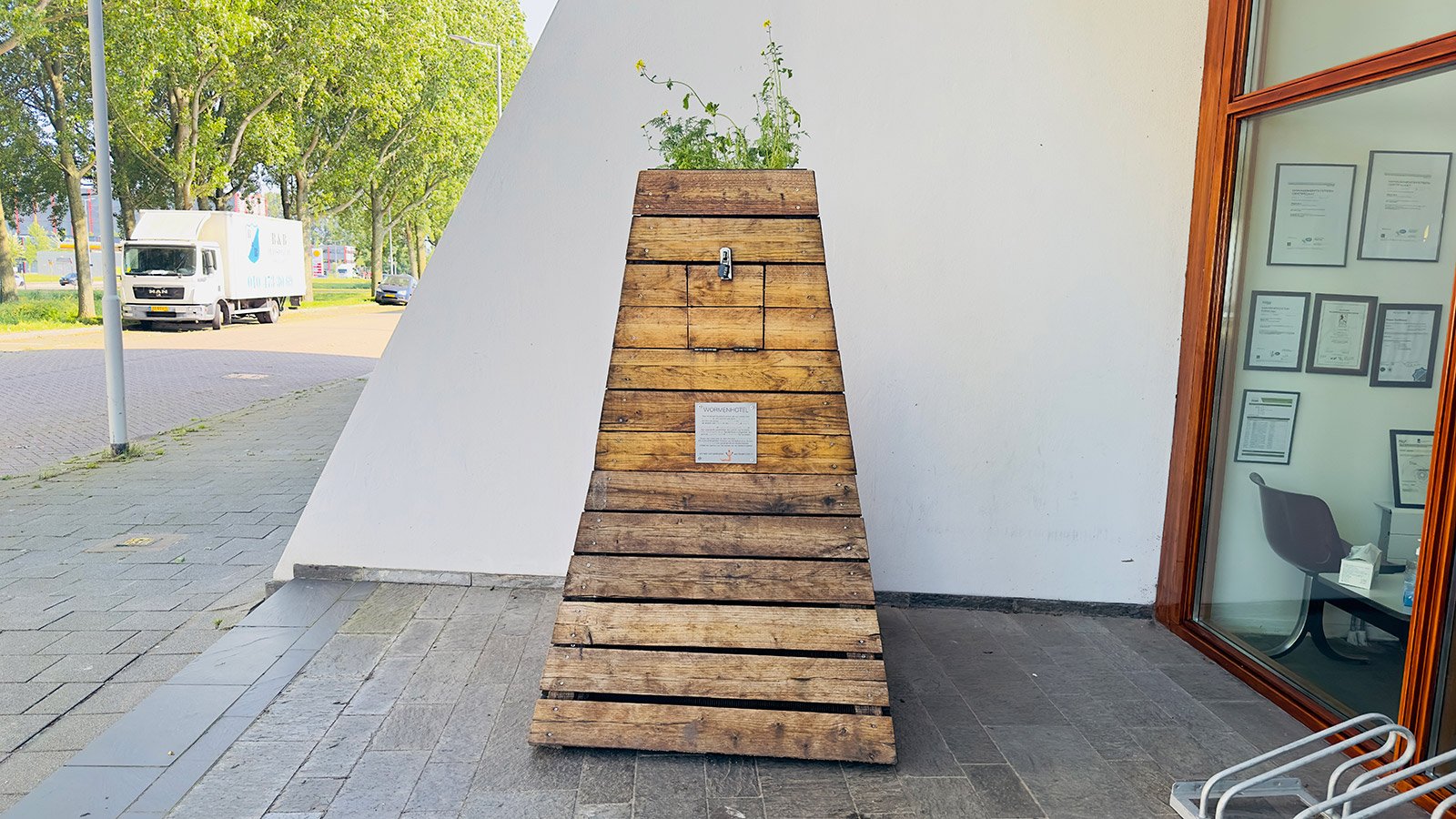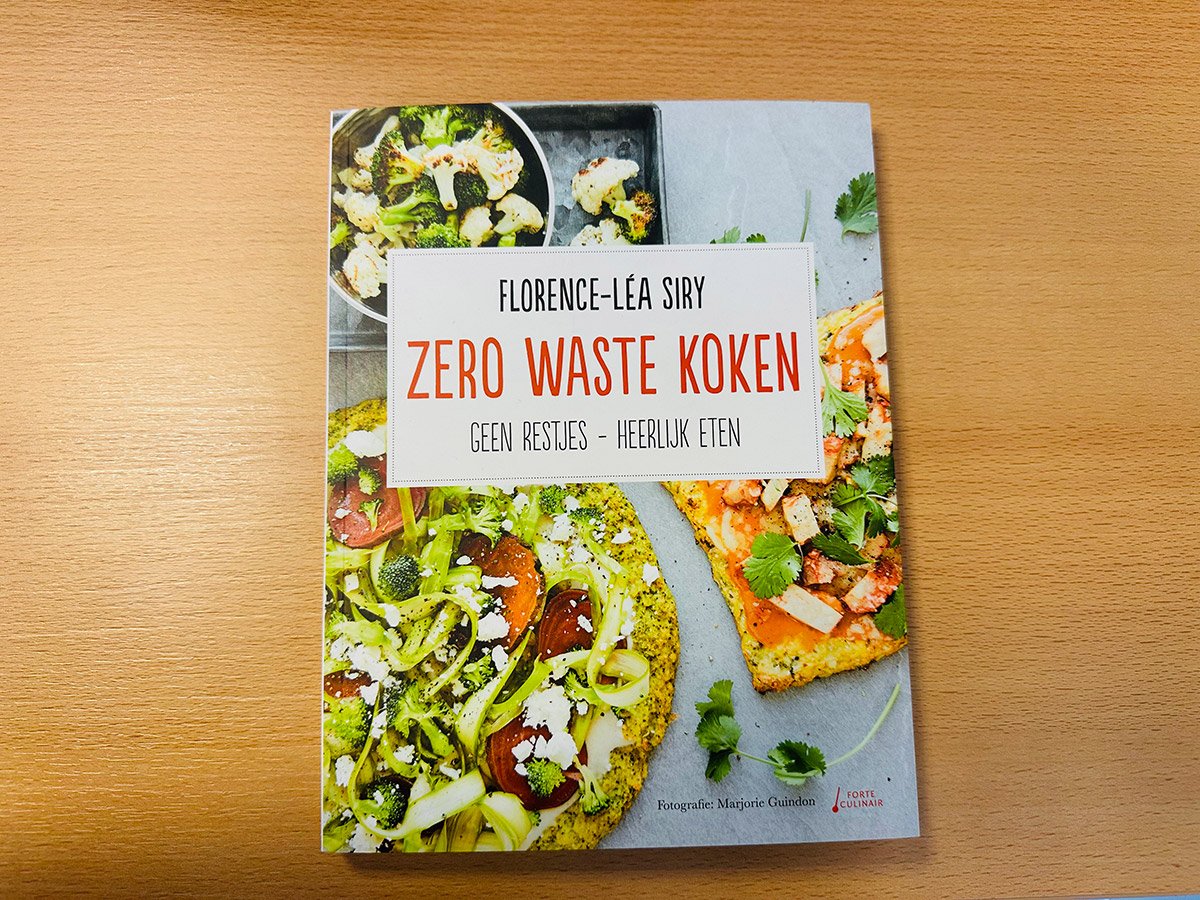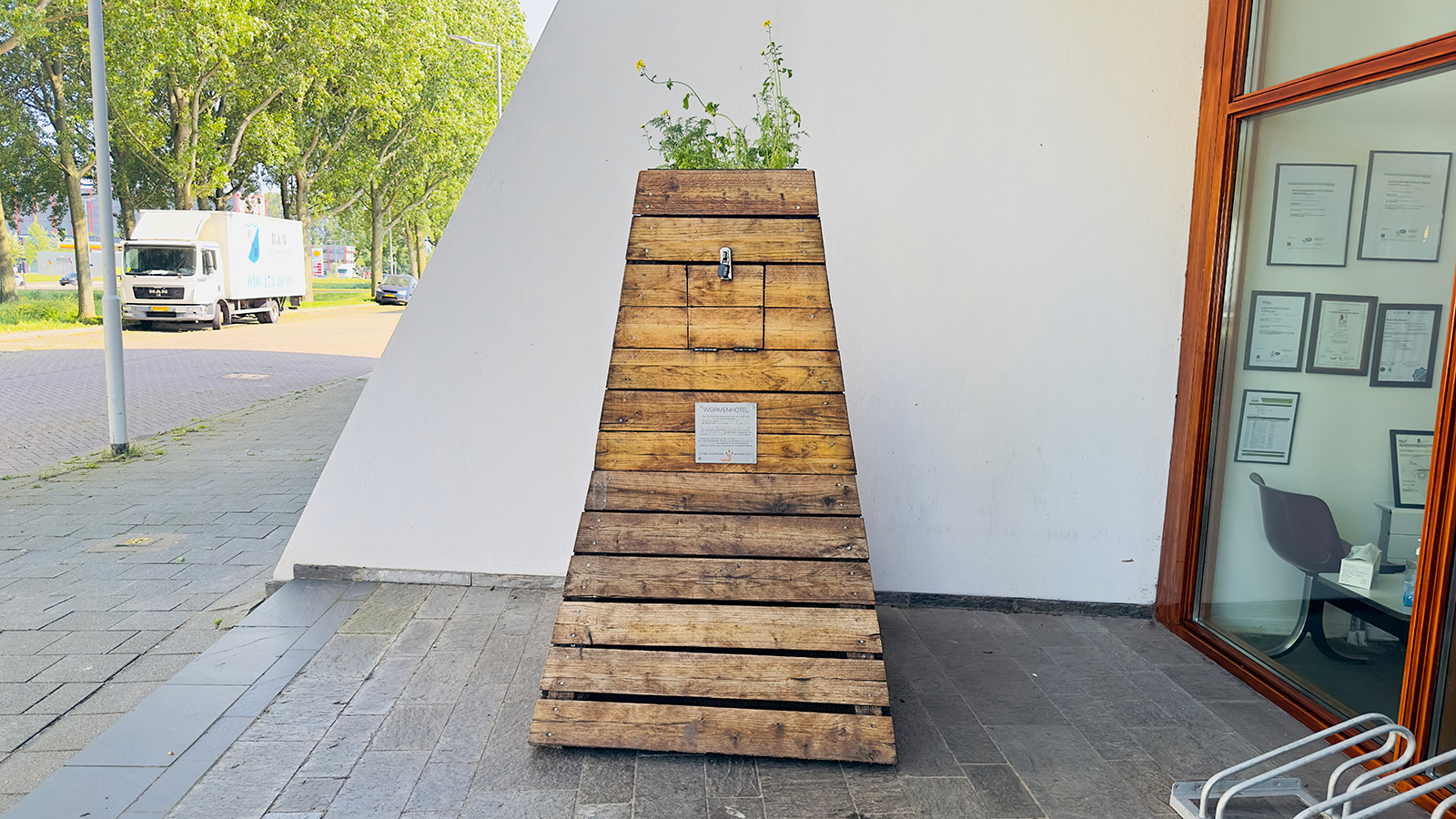Yesterday we held the first waste lab in which we analyzed our industrial waste at the office. During the lab we discovered that we have a considerable amount of paper and organic waste. To tackle the problem of organic waste, we immediately implemented a solution in the form of a worm hotel. In addition to the worm hotel, there are other efficient solutions for Organic waste.
Worm hotel
A worm hotel is an ingenious solution for processing organic waste. More than 1000 worms live in a worm hotel that can be fed with leftover food and the peel of fruit and vegetables. They also like to eat leaves, coffee grounds, tea bags and paper. However, there are some things that are not suitable for the worm hotel, such as cooked food, meat and fish, as these can attract vermin. The worms digest the waste and produce high-quality compost that can be used to feed plants. So the concept is both simple and effective. If you don't want to buy a worm hotel, you can also lease one. By using a worm hotel you not only prevent your organic waste from going to the landfill, but you also create a sustainable source of nutrients for your plants. Interested in a worm hotel? Go to wormenhotel.nl and view the options.

Zero Waste Cooking
Another effective way to reduce organic waste is to consciously deal with food and strive for zero-waste cooking. This means carefully planning what you want to cook, using the right amounts, and creatively reusing leftovers. Many parts of fruits and vegetables that would normally be considered waste, such as peels and stumps, are actually fine to consume. You can use them in soups, stews or even smoothies. By being aware of your cooking habits and being creative with leftovers, you can avoid a lot of organic waste and prepare delicious meals at the same time.

Smart purchasing together
A third solution for reducing organic waste is collective smart purchasing. We often buy more food than we actually need, so that a lot ends up in the trash. By shopping and sharing food with family, friends, or colleagues, you can better match the quantities to the needs of the group. This not only reduces waste, but can also lead to cost savings. In addition, you can jointly make compost from the GFT waste, making it a valuable resource for the entire community.
Reducing Organic waste
Reducing organic waste is an important step towards a more sustainable and environmentally friendly world. By using solutions such as a worm hotel, zero-waste cooking and collective smart purchasing, we can significantly reduce the amount of organic waste that ends up in landfill or incinerator.
Tips or ideas?
Do you have any tips or ideas for preventing waste streams? Let us know! We would like to hear what you are doing to reduce food waste or avoid packaging waste, for example. We will include your suggestions in our next blogs, in which we discuss solutions for various waste streams.










